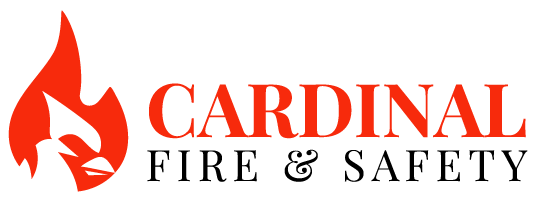We’re Local, Loyal, and Fire-Proof.

Proudly family-owned and operated right here in Northeast Ohio – delivering personalized, certified fire protection you can trust.
Your Local Fire Protection Partner – Not a Big Chain
At Cardinal Fire & Safety, we’re not part of some national franchise. We’re independently owned and operated right here in Summit County, Northeast Ohio – and we live and work in the communities we serve.
That means faster response times, personalized service, and a genuine commitment to keeping your property and people safe. No corporate red tape, no impersonal call centers – just local experts who care.
Over 15 Years of Hands-On Industry Experience
Owner and lead technician Mike Bowles brings more than 15 years of dedicated fire protection experience. He’s fully certified to handle every category we offer – including backflow prevention testing, fire alarm monitoring, sprinklers, extinguishers, hydrants, fire pumps, and more.
Our Current Focus: Backflow Testing & 24/7 Monitoring
Backflow Prevention Testing & Service
Protect your water supply and stay compliant with local EPA and Ohio regulations. We test, repair, and replace backflow prevention devices of any size – from small commercial setups to large industrial systems.
- ✅ Free Fire Protection Assessment
- ✅ Fast, accurate reports & documentation
- ✅ Repairs & replacements when needed
- ✅ Help with violation notices & compliance
Don’t risk fines or shutdowns – let your local team handle it.
24/7 Fire Alarm Monitoring
24/7 Fire Alarm Monitoring
Peace of mind around the clock. Our UL-listed, Five Diamond Certified central station monitoring ensures your fire alarms are watched 24/7 – even when your business is closed.
- ✅ Immediate dispatch on alarm activation
- ✅ Reduced false alarms & faster response
- ✅ Cell dial or land line
- ✅ Integrated with your existing systems
When seconds matter, our local monitoring keeps you covered.
Why Northeast Ohio Businesses Choose Cardinal Fire & Safety
Truly Local
Serving Summit County and surrounding NE Ohio areas – we know these communities like our own backyard.
Certified & Experienced
Mike and our team are fully licensed for all services – no outsourcing, no surprises.
Ready to Protect Your Property the Local Way?
Get in touch with Mike and the Cardinal Fire team for a no-obligation quote on backflow testing, monitoring, or any of our fire protection services.
